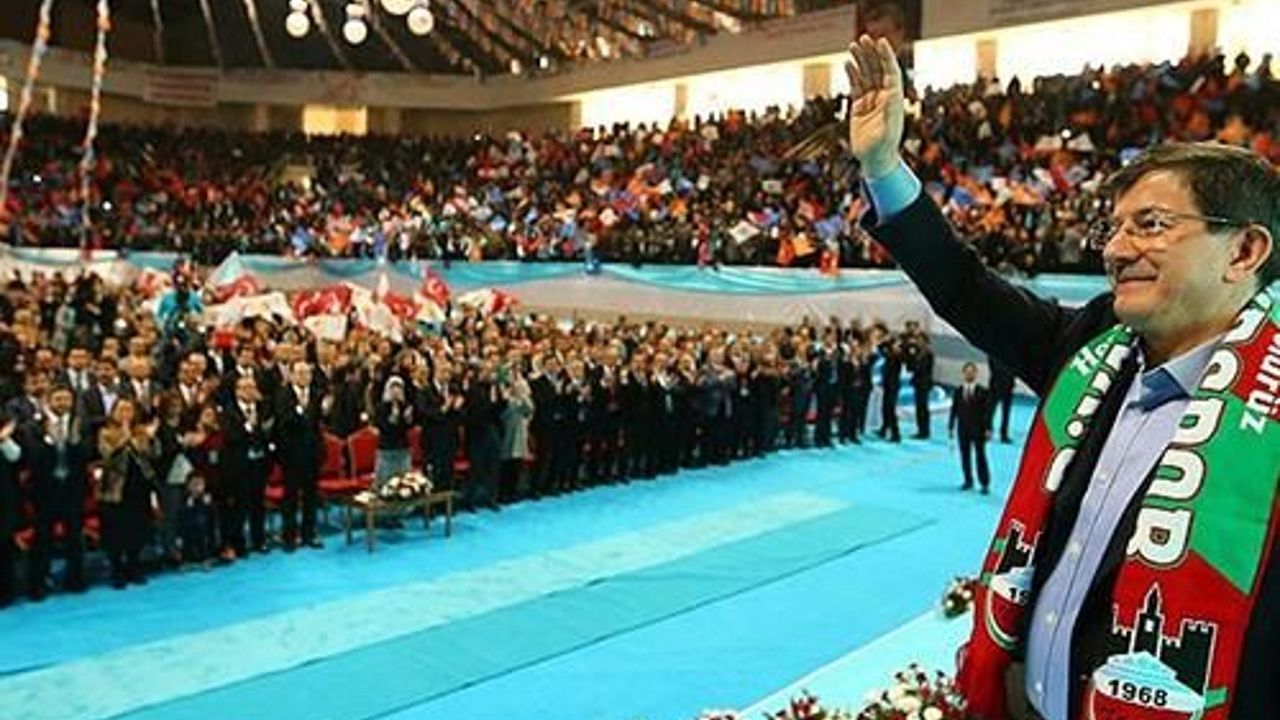PM Davutoglu says, Turkey island of stability in Middle East
Politics |
Premier Davutoglu stresses equality among sections of society and fight against sectarianism in early election campaign rally in east

Font Size:
Prime Minister Davutoglu on Sunday called Turkey an island of stability in the Middle East, warning against threats of discord and vowing fight against sectarianism.
We, above all, owe this stability to our brotherhood, our democracy and the culture we have inherited from our ancestors," said Davutoglu in his Justice and Development Party's provincial congress in southeastern Batman province.
In his speech, Davutoglu said those who discriminate between Turkish and Kurdish people are treacherous and pledged every national would live in justice in the country, from west to east.
"We will not allow discrimination between Turk and Kurd, and between an Alevi and Sunni," said the premier.
Stating that some at home and abroad might seek to turn Turkey into Syria or Iraq by inciting riots -- referring to Gezi Park protests, December anti-graft operations and October Kurdish protests -- Davutoglu said the will that would stand upright against these kinds of provocations was brotherhood.
The so-called Gezi Park protests began in the summer of 2013 when the Istanbul municipality attempted to remove a number of trees in a rare green space in the city center as part of a redevelopment project.
The graft operations in late 2013 targeted former Prime Minister and incumbent President Recep Tayyip Erdogans close allies, in a series of operations that the government termed a coup attempt.
In October 2014, pro-Kurdish protests killed 40 Turkish citizens after Islamic State of Iraq and the Levant besieged the Syrian border town of Kobani and the protesters alleged that the Turkish government was not doing enough to help the mostly-Kurdish population there.
Anadolu Agency
We, above all, owe this stability to our brotherhood, our democracy and the culture we have inherited from our ancestors," said Davutoglu in his Justice and Development Party's provincial congress in southeastern Batman province.
In his speech, Davutoglu said those who discriminate between Turkish and Kurdish people are treacherous and pledged every national would live in justice in the country, from west to east.
"We will not allow discrimination between Turk and Kurd, and between an Alevi and Sunni," said the premier.
Stating that some at home and abroad might seek to turn Turkey into Syria or Iraq by inciting riots -- referring to Gezi Park protests, December anti-graft operations and October Kurdish protests -- Davutoglu said the will that would stand upright against these kinds of provocations was brotherhood.
The so-called Gezi Park protests began in the summer of 2013 when the Istanbul municipality attempted to remove a number of trees in a rare green space in the city center as part of a redevelopment project.
The graft operations in late 2013 targeted former Prime Minister and incumbent President Recep Tayyip Erdogans close allies, in a series of operations that the government termed a coup attempt.
In October 2014, pro-Kurdish protests killed 40 Turkish citizens after Islamic State of Iraq and the Levant besieged the Syrian border town of Kobani and the protesters alleged that the Turkish government was not doing enough to help the mostly-Kurdish population there.
Anadolu Agency
Similar News
Video News

WORLD
26 Mart 2024 - 11:18
Photo News






